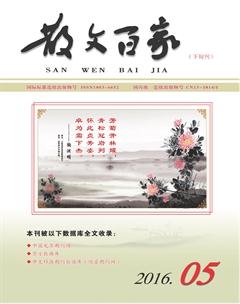一般过去时态之我见
赵凤敏
学习一般过去时态先要复习动词的过去式,动词过去式通过重温过去的事情/件展开,然后总结动词过去式的特点。本次我们通过过去的事件南京大屠杀来重温动词过去式,首先展示追悼遇难者Never forget!!图片,then,students answer question:what happened on Dec.13th ,1937?学生回答后引入Nanjing Massacre!,领读Nanjing Massacre,then explain,On Dec.13th 1937, Japanese army killed 300,000 Chinese.边讲述边展示图片They burned our Chinese.They throwed our Chinese into the river.They practiced their skills by killing Chinese.They buried Chinese who are still alive.Mother cried because their children died.Japanese planned to kill as many Chinese as possible.They robbed our treasure.They cut down their heads and took photos.Our Chinese were hungry because they had no food.Children went to street to beg.最后总结This is Nanjing Massacre.展示图片We will never forget “Nanjing Massacre”。
复习动词过去式的规律特点
(一)On Dec.13th 1937, Japanese army killed 300,000 Chinese;They burned our Chinese;They throwed our Chinese into the river.特点直接加ed.
(二)They practiced their skills by killing Chinese.特点以不发音字母e结尾,直接加d。
(三)They buried Chinese who are still alive;Mother cried because their children died.特点以辅音字母加y结尾,变y为i加ed.
(四)Japanese planned to kill as many Chinese as possible.They robbed our treasure.特点重读闭音节,双写末尾字母加ed.
(五)They cut down their heads and took photos;Our Chinese were hungry because they had no food;Children went to street to beg.特点不规则变化。
复习完动词过去式特点,接下来讲授语法一般过去时态。是表示过去经常或偶然发生的动作或存在的状态的时态.用一般过去时态。
一般过去时态的知识结构从三个方面来讲:构成、用法、常用时间。
(一)构成:一般过去时态根据语境由动词的过去式构成。
(二)用法:1.表示过去某个时间发生的动作或存在的状态;2.表示过去经常或反复发生的动作。
(三)常用时间:yesterday;last night;in 1990;two days ago等。
下面结合时代特征对一般过去时态和动词过去式练习。
2.Practice ( pay attention to the darker words.)
1. On Sept 3rd, 2015, We China (hold) a parade marking the “Victory Day of Chinese peoples war of Resistance against Japanese Aggression.”
2. It(be) sunny. Many people (arrive) at Tiananmen Square early. We(invite)many foreign leaders,too.
3. They(wait) some time for the parade. When Chairman Xi(start) giving a speech, we(be) all very excited.
Step3. 一般过去时态的“三变化”
(观察)1.He wasn't at home yesterday.
2.Did you show her around your school at that time?
3.What did you do last weekend?
(发现)一般过去时态的肯定句变为否定句或疑问句时,应注意以下三种变化:
一变―肯定句变否定句:
1.句中有系动词(was,were),情态动词(could,must,should)或助动词(would,have)等时,只需要在它的后面加上否定词not.
2.句中出现feel,seem,look等另类系动词或实义动词时,需要在该动词之前加上didn't,该动词还需要还原为动词原形。
二变―可定句变一般疑问句:
1.句中有系动词(was,were),情态动词(could,should)或助动词(would,had)等时,只需要将该词提前至句首并大写首字母。
2.句中出现feel,seem,look等另类系动词或实义动词时,需要将助动词Did放在句首,该动词还需要还原为动词原形。
三变―可定句变特殊疑问句:
此时,只需要在二变的基础上,在一般疑问句的句首加上相应的特殊疑问词即可。即应采用以下两种结构:
1.疑问词+系动词(was/were)+主语+其他?
2.疑问词+情态动词(could/should)/助动词(would/had/did)+主语+动词原形+其他?
(应用)根据要求完成句子。
1.I stayed there for 3 days.(变为否定句)
I there for 3 days.
2.He bought something special yesterday.(变为一般疑问句)
he special yesterday?
3.Mary could swim when she was four years old.(变为否定句)
Mary when she was four year old.
Step4.Summary
1.总结动词过去式特点及一般过去时态的三变化.
2.Remember our mission!
Remember our happy life is from the hard work of our pioneer. We must remember the national shame that happened in 1937, remember that the Japanese army had killed more than 300,000 people in Nanjing at that time!
But just remembering these is not enough, we must put something into practice. We need to know that the young is the future of the country. If the young are weak, disabled ,the country will be over. Like Liang Qichao said:“If the young are rich, so will be the coutry; If the young are strong, so will be the country!” Because of this, we must build a great and beautiful dream, and then study hard, learn a lot to improve ourselves at every second!
Remember our mission!

